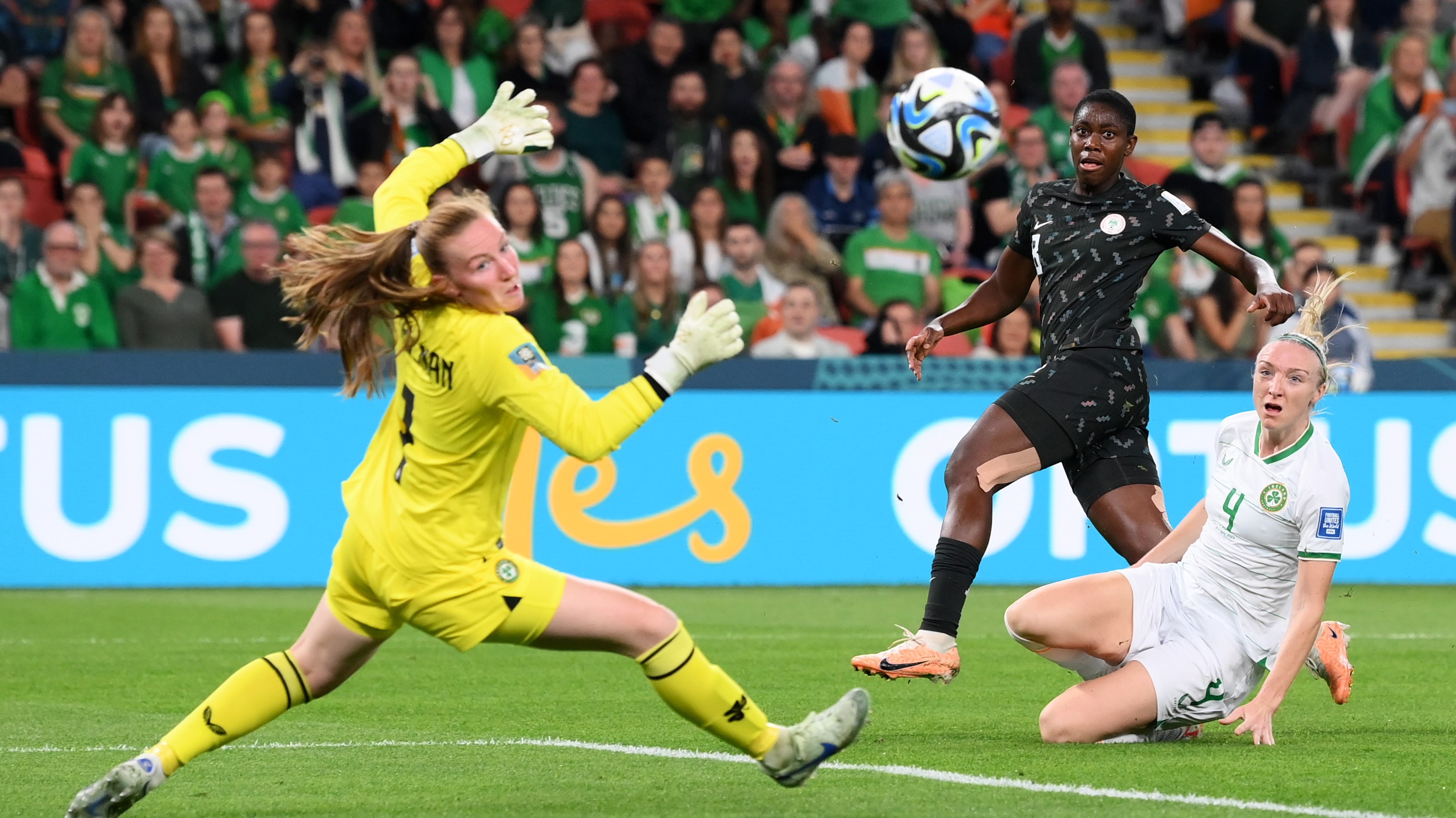How Introduced Football To Nigeria: The Evolution Behind Soccer In Nig…
페이지 정보

본문

A whopping 67% of Nigerians view Football, which shows how much the sport influences Nigerian culture. Football's journey in Nigeria began over 100 years ago, shaping the nation's sporting landscape.
Football in Nigeria dates back to the early 1900s. British colonisers brought the sport to the nation in 1904. The first taped football match took place that exact same year, beginning Nigeria's abundant footballing history.

By 1950, Football had become Nigeria's national game. Its fast increase caused lots of clubs and associations forming in the early 1900s. This growth boosted Nigerian pride and helped motivate political freedom movements.
Nigeria's football tradition now reaches beyond its borders. For many years, the nation has produced world-class talent, and Nigerian youth teams have won the FIFA U-17 World Cup five times.
The Super Eagles, Nigeria's national team, are a force in African Football. They often get approved for significant competitions and make their mark worldwide.
The British Colonial Introduction of Football to Nigeria
Football got here in Nigeria during the British colonial era. It quickly caught the hearts of locals, marking the start of a rich footballing tradition in the country.
The First Football Match in 1904
The first football match in Nigeria happened in June 1904. It was between Hope Waddell Training Institution and the crew of HMS Thistle. The Nigerian group won 3-2, triggering an across the country enthusiasm for the sport.
Hope Waddell Training Institution vs HMS Thistle
I hope the Waddell Training Institution in Calabar played a crucial role in early Nigerian Football. Their victory over HMS Thistle's team showed the talent of Nigerian players. This match set the stage for Football's growth in the country.
Early Football Club Formation (1906-1932)
After the 1904 match, Football's popularity skyrocketed. From 1906 onwards, early football clubs began forming, and this grassroots movement spread out the sport throughout Nigeria.
The Lagos District Amateur Football Association (LDAFA) was developed in 1932. The LDAFA marked the start of organised Football in Nigeria and led the way for the sport's future success nationally and worldwide.
Who Introduced Football in Nigeria
Football arrived in Nigeria in the early 20th century. British colonisers brought this beloved sport dates back to the early the West African nation. It rapidly ended up being an enthusiasm that shaped Nigeria's sporting landscape for generations.
Role of British Colonisers
British colonisers played a crucial role in Nigeria's football history. The first recorded match occurred in June 1904. Hope Waddell Training Institution dealt with the team of HMS Thistle.
The Nigerian group won 3-2. This victory marked the start of an abundant football legacy in the country.
Development of First Football Association
The Lagos District Amateur Football Association (LDAFA) was established in 1932. It prepared for organised Football in Nigeria, which led the way for the Nigerian Football Association (NFA).
The NFA was founded in 1945. It became the national governing body for Football and manage its development throughout the country.
Development of Local Football Culture
Football rapidly took root in Nigeria, becoming the national sport by 1946. Its ease of access and simple rules helped it spread rapidly. Local communities welcomed the video game, forming their groups.
This grassroots enthusiasm laid the structure for Nigeria's future success. The nation's passion for Football grew, leading to achievements on the worldwide phase.
"Football ended up being more than just a sport; it developed into an important Nigerian culture and identity component."
The British colonisers' introduction of Football sparked a sporting transformation in Nigeria. Football's journey mirrored the nation's growth from the first match in 1904 to the formation of the NFA in 1945.
Today, Football stays an integral part of Nigerian life. It's a testimony to the sport's long-lasting appeal and cultural significance in the country.
The Rise of Nigerian Football Administration
The Nigerian Football Association (NFA) was developed in 1945. It played an essential role in shaping Nigerian Football. In 1949, the NFA formed Nigeria's first nationwide football team.
In 1959, Nigeria joined the Confederation of African Football (CAF), which enabled it to participate in continental tournaments. Nigeria also became a FIFA member in 1960, signing up with the international football community.
The NFA, later on relabelled the Nigeria Football Federation (NFF), organised national competitions. They developed the Nigerian Premier League and the Federation Cup, which became the highlights of domestic Football.
Football associations across Nigeria grew under the NFF's guidance. They nurtured skill and promoted grassroots development. Expert Football started in 1990 with sixteen club sides participating.
"Our mission is to revive football development of football in nigeria at the nationwide level and repackage the league in line with worldwide finest practices," states the Nigeria National League.
The Premier League was implemented in 2003. This relocation aimed to enhance domestic football requirements and bring in more viewers and sponsors to national competitions.
Nnamdi Azikiwe's Impact on Nigerian Football
Nnamdi Azikiwe, born in 1904 in Zungeru, Northern Nigeria, left an indelible mark on Nigerian Football. His influence formed the nation's sporting landscape. Azikiwe's passion for sports came from his varied experiences and education abroad.
Facility of Zik's Athletic Club
In 1938, Azikiwe established Zik's Athletic Club (ZAC) in Lagos. This club became a symbol of African self-determination. ZAC played a vital function in developing Nigerian Football.
It offered a platform for young professional athletes to showcase their abilities. The club promoted local skill and cultivated a sense of national pride.
The West African Pilot's Influence
Azikiwe's newspaper, the West African Pilot, played a substantial role in popularising Football across Nigeria. It extensively covered regional matches, team news, and player profiles. This limelights assisted grow the sport's fan base.

Football as a Tool for Independence
Azikiwe saw Football's possible as a unifying force in the independence motion. He used the sport to break down ethnic barriers, and Football became a symbol of Nigerian unity through his advocacy.
Azikiwe's efforts linked Football to nationalism, contributing considerably to the sport's growth and forming its function in modern-day Nigeria.
"Football is not just a video game; it's an effective national unity and identity tool."
Nigeria's Journey to International Football Recognition
Nigeria's football journey took a substantial leap forward in 1960. The nation got FIFA membership, marking its entry into global Football. This turning point accompanied Nigeria's self-reliance from British guideline.
FIFA Membership and First International Match
Nigeria's first global match took place on 8 October 1949. They faced Sierra Leone and won 2-0 in a historical encounter. This success triggered enthusiasm for Football throughout the nation.
Early Continental Competitions
Nigeria debuted in the Africa Cup of Nations in 1963. The tournament, hosted by Ghana, saw Nigeria dealing with tough opponents. These experiences proved valuable for the group's growth.
Nigeria's perseverance settled in 1973. They clinched gold at the All-Africa Games, marking their first major continental success. 1976, they secured bronze at the Africa Cup of Nations in Ethiopia.
Nigeria's football prowess grew in the 1970s. In 1978, they repeated their bronze medal feat in Ghana. 1980, Nigeria hosted and won its first Africa Cup of Nations title.
Advancement of Nigerian Football Governance
Nigerian football governance has actually seen significant changes and obstacles given that 1945. The Nigeria Football Federation has shaped the nation's football landscape, and its journey has been complicated and transformative.
From NFA to NFF
The Nigeria Football Association began in 1945. It ended up being the Nigeria Football Federation in 2008. This change intended to modernise the organisation's structure.
In 2019, a costs was passed to recognise the NFF formally. It's still awaiting governmental approval.
Advancement of League Systems
The NFF manages 3 main leagues: the Nigerian Premier League, Amateur League, and Women's League. These competitions form the backbone of Nigerian Football.
They promote talent and promote the sport nationwide. However, obstacles like delayed seasons and venue conflicts persist.
National Team Formation
Nigeria's Super Eagles national team was formed in 1949. They've gotten approved for 6 FIFA World Cups and won 3 Africa Cup of Nations titles.
These achievements have actually increased Nigeria's standing in international Football. The Super Eagles' success has actually put Nigeria on the international football map.
However, Nigerian Football faces continuous challenges. A study revealed high levels of corruption in football governance. This impacts agreement awards and player choice.
These concerns highlight the need for reform. For the sport to flourish, transparency in the Nigerian football administration must enhance.
Conclusion
Nigerian Football's tradition showcases the nation's strength and passion. It started in 1904 with Hope Waddell Training Institute dealing with HMS Thistle. Ever since, Nigeria has actually become a powerhouse in African Football.
The sport's growth shows the nation's journey from colonial guideline to self-reliance. It has actually fostered a sense of national identity and unity. Nigeria's worldwide football recognition is indisputable.
The Super Eagles' gold medal at the 1996 Atlanta Olympics is an emphasize. Their outstanding FIFA World Cup performances also stand out. Nigeria has actually qualified for 6 World Cups.
In 1994, Nigeria attained its highest FIFA ranking of 5th, strengthening its put on the worldwide stage. Nigerian Football continues to progress with promising prospects.
Skills like Ahmed Musa and Kelechi Iheanacho shine in leading European leagues. This bodes well for the sport's development of football in nigeria. The Nigeria Football Federation guides the video game's progress.
Football's sustaining legacy in nigeria professional football league influences upcoming generations and guarantees an interesting future for the sport. The stunning game remains a source of national pride and unity.
FREQUENTLY ASKED QUESTION
Who introduced football to Nigeria?
British colonisers brought Football to Nigeria in the early 1900s. The sport quickly became popular and woven into Nigerian culture.
When was the first football match played in Nigeria?
The first taped football match in Nigeria happened in June 1904. Hope Waddell Training Institution bet the HMS Thistle team. The Nigerian team won 3-2.
How did Football end up being Nigeria's national sport?
Football's easy guidelines and availability made it popular in Nigeria. By 1950, it was the national game, motivating pride and freedom motions.
What function did Nnamdi Azikiwe play in Nigerian Football?
Nnamdi Azikiwe, Nigeria's very first President, was vital in developing Football. He started Zik's Athletic Club in Lagos in 1938, and his paper, the West African Pilot, connected Football to the independence motion.
When did Nigeria sign up with FIFA?
Nigeria became a FIFA member in 1960, the exact same year it acquired independence. This significant Nigeria's main entry into international football governance.

What is the Nigerian Football Federation?
The Nigerian Football Federation (NFF) governs Football in Nigeria. It developed from the Nigerian Football Association, established in 1945. The NFF arranges nationwide leagues and competitions, including the Premier League and Federation Cup.
What significant successes has Nigerian Football attained?
Nigeria has actually played in six FIFA World Cups. The Super Eagles national team has actually won 3 African Cup of Nations. They've likewise won gold in the 2nd All-Africa games.

- 이전글Can Aviator Betting Generate Profits: Bet Methods and Winning Techniques 24.12.08
- 다음글Chelsea vs Villa – EPL : 13:30 – 01-12-2024 24.12.01
댓글목록
등록된 댓글이 없습니다.




